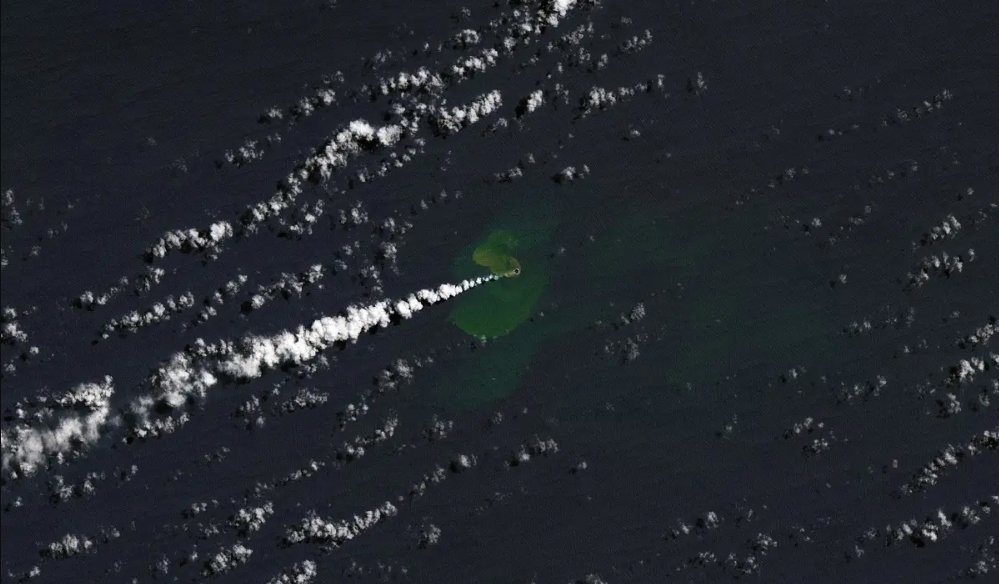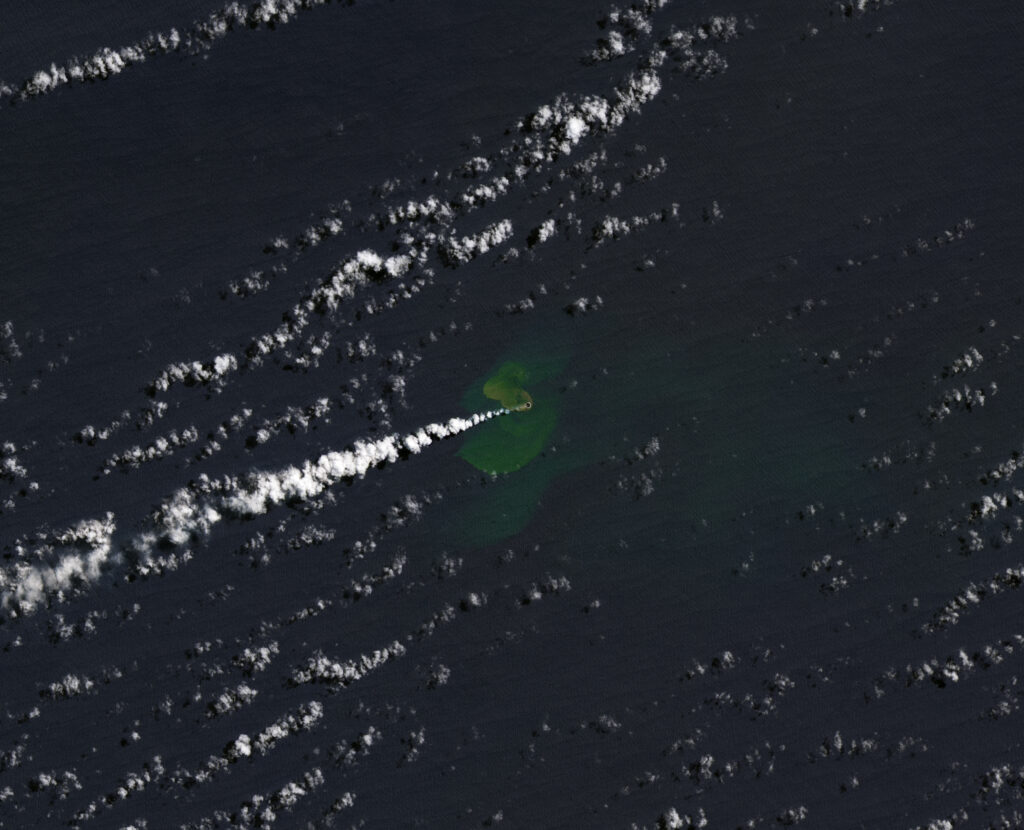News
A New Island Has Just Randomly Popped Up In The Middle of The Ocean
Hang in there little dude.

Did it always exist?? NASA’s Earth Observatory has spotted a brand new island in the southwestern Pacific Ocean.
The undersea ridge from which this new island emerged is home to the world’s greatest concentration of submerged volcanoes. The mountain range beneath the sea connects New Zealand and Tonga; it is called Home Reef.
According to a press statement from the Earth Observatory, one of those volcanoes began bubbling to life and erupting in September, filling with lava that overflowed out into the surrounding ocean and billowing massive columns of ashy smoke into the atmosphere.
Eleven hours later, a brand-new island formed among the shimmering heat of the waning explosion. The island’s newfound beauty was captured by NASA’s Operational Land Imager-2 (OLI-2) in a stunning, color photograph.

It was calculated that the island was around one acre in size, or 43,000 square feet, based on measurements taken on September 14. The island was also found to be 33 feet above sea level. By September 20th, though, the expanding island covered almost six acres, or 260,000 square feet.
Given that the Home Reef seamount is located in the Tonga-Kermadec subduction zone, wherein three tectonic plates are colliding slowly and grindingly, it is not unexpected that volcanic activity there has given rise to islands. The Pacific Plate is the biggest of the three, measuring in at about 40 million square miles in extent.
Due to its massive size, the Pacific Plate eventually dives into the other two lighter colliding plates, creating a trench in the seabed known as the Kermadec Trench and the active Kermadec volcanic arc behind that.
NASA has cautioned that islands formed by underwater volcanoes don’t tend to last very long, so this little guy probably won’t be around for long. But there are also outliers; for example, an island formed by the neighboring Late’iki Volcano in 1995 has remained in place for the last 25 years, which is a long time in human terms but a short time in geological ones.
So, hang in there little buddy. We’re cheering for you.
Typos, corrections and/or news tips? Email us at Contact@TheMindUnleashed.com
